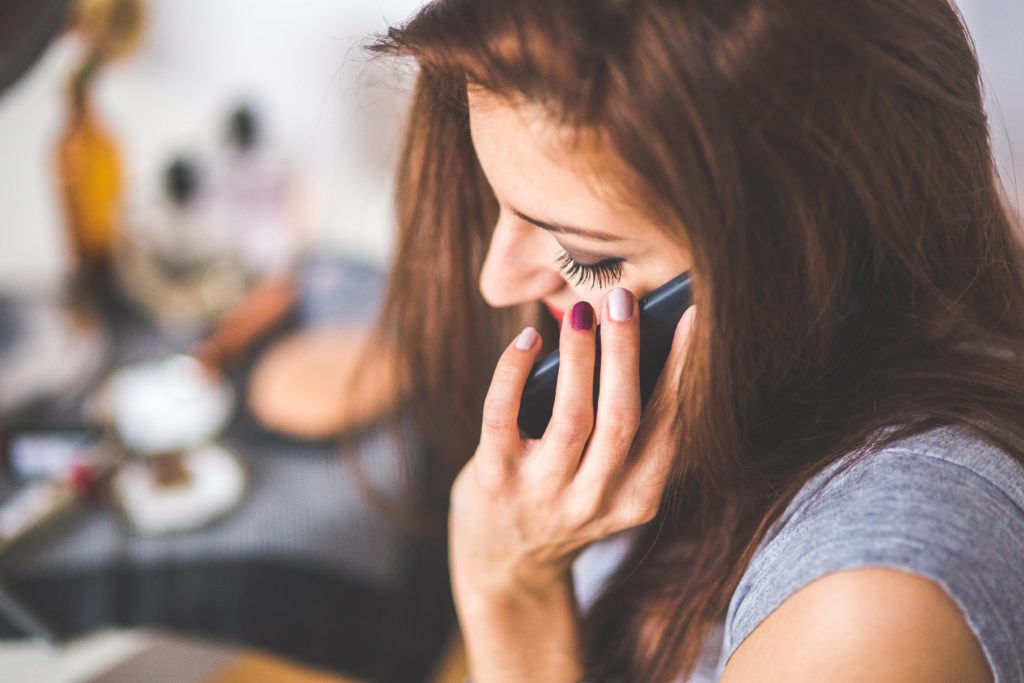How to look after your mental health while studying from home
Taking the time to look after your mental health is incredibly important, no matter if you’re studying at home or attending classes face-to-face.
When your mind and body feel energised and healthy, you’re likely to be much more productive and create even more time to do the things you enjoy doing.

Now that students all over the world have had to move their studies online, prioritising your mental wellbeing and being kinder to yourself is more important than ever. Looking after your mind and body can help prevent you from feeling overwhelmed and stressed, while making you feel healthier, more motivated and stronger.
This is the time to make new patterns and healthy habits in your everyday life to help you be your best self. To help you get started, here are our mental health tips and self-care advice for students studying at home.
What is self-care and how can it help my mental health?

Practicing self-care is one of the best way to manage your mental health symptoms. It isn’t about one specific set of activities or daily rituals that you complete, but it’s altering your mindset by changing your habits and doing things just for you.
We know it isn’t easy dedicating time to look after yourself when you have so many things to do and so many other people to worry about, but you have to get over any guilt you may feel for doing things for yourself and learn how to make space in your life for self-care.
Creating new mindful habits will help you build a lifestyle that is fulfilling and meaningful to you, instead of just going through the motions. There’s so much pressure to constantly be doing something productive, with the expectation that it’ll lead to successful studies, when in actuality sometimes taking a step back can put you in a stronger position to succeed.
Why is self-care important for students and how can I learn to practice it?

We want to be the whole package – to excel in our studies, have an active social life, stay fit and healthy, be part of a society, travel to see new places, stay connected to family… there’s so much to cram in. We fear missing out and can quickly think of ourselves as failures if we struggle to live up to the expectations that we create for ourselves.
Self-care is about respecting yourself and being kind to yourself. It’s about loosening the pressure we put on ourselves and taking the time to relax and unwind. You will find fulfilment from varying self-care activities depending on who you are and what you like to do, but here are some examples to get you thinking:
- Pamper yourself. As strange as it sounds, staying on top of your personal hygiene (even if you can’t leave the house!) will help you feel ready to take on the day. You could also run yourself a bubble bath, put on a facemask or give yourself a manicure.
- Go outside if you can. Spending time outdoors can reduce stress levels and help you feel more energetic and mindful. Whether you go for a walk or sit down in a park, breathing in fresh air and feeling the sun on your skin is definitely a mood booster.
- Spend time with a pet. Animals are known to help reduce stress in humans just by petting them. The companionship and love they give us does wonders for self-care!
- Organise your living space. Waking up to an organised space puts you in the right frame of mind to organise your studies. As the expression goes, “tidy space, tidy mind”.
- Cook something you love to eat. Eating healthy foods such as vegetables and nuts can help improve our moods and keep us alert, but that doesn’t mean you should throw out ‘junk’ food that you enjoy eating. Moderation is the key!
- Hit pause and read a book. It’s a known fact that social media can make us feel more anxious and stressed, so why not put your phone away and pick up a book you enjoy reading? It’s a great way to slow down and be more mindful.
- Find a new hobby. Finding a balance between studying and doing something creative, like learning to crochet or drawing, will help clear and refresh your mind. But importantly, don’t put pressure on yourself to master your hobby straight away!
- Decorate your space. Personalising your living space will create a more meaningful environment to live and study in. Fill your home with plants to help purify the air you breathe, create or find art to hang up, or add some fairy lights to soothe the space.
I hear “be kind to yourself” a lot – what does this mean?

‘Be kind to yourself’ simply means cut yourself some slack. Try not to beat yourself up if you don’t get everything on your to-do list done. Accept that you are only human, and you can only do a limited number of things in a day. Release the impossibly high standards that you’ve set for yourself and accept that being perfect is an impossible task.
Try not to compare yourself to your friends, classmates or people on social media. You are good enough. You’re doing the best you can. Give yourself some recognition and praise.
What can I do to be kinder to myself?

A huge part of being kind to yourself is taking good care of your health. Staying active can help you feel better both physically and mentally, improve your mood and reduce stress. Simple exercises such as running, walking and yoga are easy to fit into a busy schedule, or you could download a fitness game on your games console if you struggle to concentrate on traditional forms of exercise!
Sleep is another thing that has a huge impact on your life. Not getting enough sleep can make your emotions feel heightened and make you feel sluggish and unmotivated. But what’s the secret to a good sleep? You should consider your nightly routine:
- When did you last consume caffeine?
- What time do you settle down to sleep?
- What could you do to relax at the end of a stressful day?
- Are there distractions in your room keeping you awake?
- Does the sun shine through your window and wake you up too early in the morning?
Addressing these points could help you make great strides in having a better sleep. You could also try deep breathing exercises and other mindfulness techniques to reduce stress levels and increase calmness. Apps such as ‘Headspace’ are popular choices for beginners.
Who can I talk to if I’m feeling stressed or overwhelmed?

It’s important for your mental health to stay connected to loved ones, no matter if you’re away attending face-to-face classes or you’re studying online from home. As an international student, not being able to see friends and family from home can be really difficult, but fortunately there are many apps that can help us feel connected such as Skype, Zoom, Houseparty and WhatsApp.
If you’re feeling overwhelmed by your workload or for other personal reasons, ask a friend or family member to have a video chat. While you can’t have face-to-face contact, chatting to someone via video can release the same dopaminergic rewards in your brain as when you’re physically with them.
If you feel like you can’t talk to close friends and family about any issues you’re experiencing, counselling is a great option to explore. Talking to an impartial person who is completely separate from your social ‘bubble’ can be a truly freeing experience.
Remember: whatever your circumstances, you’ve got this!

Please be kinder to yourself and make more time for self-care to see the positive effects take shape in your life and mental wellbeing. In time, this will all get easier. You’ve got this!
If you want to begin your studies with INTO, head over to our website to find your course today.
You may also like to read our 7 study from home strategies or our top motivation tips.
Feeling social? Follow us on YouTube, Facebook, Instagram and Twitter!



